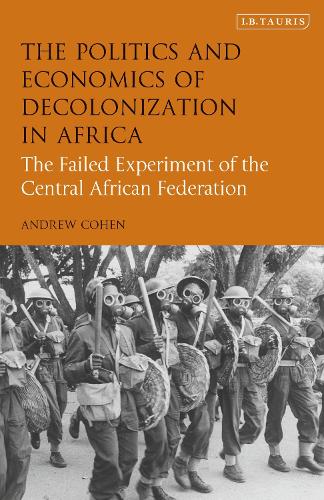
The Politics and Economics of Decolonization in Africa: The Failed Experiment of the Central African Federation
(Paperback)
Publishing Details
The Politics and Economics of Decolonization in Africa: The Failed Experiment of the Central African Federation
By (Author) Andrew Cohen
Bloomsbury Publishing PLC
I.B. Tauris
26th December 2019
United Kingdom
Classifications
Tertiary Education
Non Fiction
Colonialism and imperialism
Geopolitics
Political structure and processes
African history
968.903
Physical Properties
Paperback
320
Width 138mm, Height 216mm
363g
Description
The slow collapse of the European colonial empires after 1945 provides one of the great turning points of twentieth century history. With the loss of India however, the British under Harold Macmillan attempted to enforce a 'second' colonial occupation - supporting the efforts of Sir Andrew Cohen of the Colonial Office to create a Central African Federation. Drawing on newly released archival material, The Politics and Economics of Decolonization offers a fresh examination of Britain's central African territories in the late colonial period and provides a detailed assessment of how events in Britain, Africa and the UN shaped the process of decolonization. The author situates the Central African Federation - which consisted of modern day Zambia, Zimbabwe and Malawi - in its wider international context, shedding light on the Federation's complex relationships with South Africa, with US Presidents Dwight Eisenhower and John F. Kennedy and with the expanding United Nations. The result is an important history of the last days of the British Empire and the beginnings of a more independent African continent.
Author Bio
Andrew Cohen undertook his research at the Universities of Sheffield and Oxford, and is currently Postdoctoral Research Fellow in the Department of Historical and Heritage Studies at the University of Pretoria.
